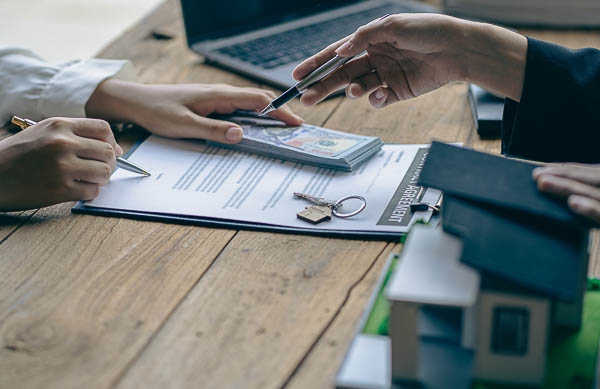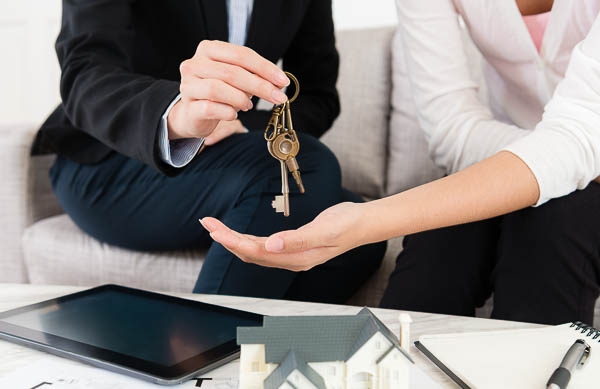
Common mistakes when buying a property and how to avoid them
Buying a home is one of the most important decisions a person can make in their lifetime.
The process can be complex and stressful, especially if you have little experience and do not get professional advice. To help you avoid some of the most common mistakes, we have put together this guide with key information on what to check before buying, the most common mistakes and tips for a successful purchase.
What to check before buying a property?
Before making any major investment, it is essential that you research and verify certain aspects of the property. Buying without having made the necessary checks can lead to legal, financial or structural problems in the future.
Legal status of the property
The first thing you should check is that the property is free of legal problems. This includes checking that the title deeds are in order and that there are no liens, unpaid mortgages or outstanding debts. It is advisable to ask for a copy of the deed and, if necessary, hire a lawyer specialized in real estate law to help you review these documents.
Physical condition of the property
A detailed inspection of the structure is essential. Check for serious damage such as cracks in the walls, moisture problems, leaks or faulty electrical installations. In the case of an older home, professional help may be necessary to identify potential problems that are not visible to the naked eye.
Zoning and Permits
It is important to make sure that the property is zoned appropriately for your needs and that it has the proper permits for the type of use you plan to make of it, for example, if you want to establish a business, verify that the zone allows commercial activities. Also, make sure that any extensions or modifications made by the previous owners have legal permits.
Location and nearby services
Location is one of the most important factors in the value of a property. Before buying, evaluate if the area has access to services such as public transportation, health centers, schools and stores. It is also relevant to know the security level of the neighborhood and if urban developments are expected in the area, as this can impact both positively and negatively on the value of the property.
Additional costs
In addition to the purchase price, you must take into account other expenses that arise when buying a property: taxes, notary fees, land registry fees, and possible commissions from intermediaries such as real estate agents. Calculate these costs before making a decision to avoid financial surprises.
At Hoffmann, we've already talked about what to consider when buying a home. Our definitive guide with the 10 best tips for buying a house can help you to know what to focus on when you are going to be a homeowner.
What are the most common mistakes when buying a property?
It's easy to make mistakes when buying a property, especially if you have no previous experience. Take a look at some of the most common mistakes when going to buy a home, especially when doing it for the first time.
Not doing thorough research
Many people buy a property based solely on first impressions or the recommendation of someone they trust, without doing proper research. This can lead to long-term problems, such as buying a home with structural problems or in an area with poor quality of life. Failure to research the neighborhood, available amenities and property history can lead to unnecessary frustration.
Ignoring hidden costs
A common mistake is to focus exclusively on the purchase price and forget about additional expenses, such as maintenance costs, taxes, insurance and possible repairs. These can significantly affect your budget, so it is important to take all costs into account from the beginning.
Not having professional advice
While buying a property may seem like a straightforward process, it's not always. Some buyers opt not to hire a lawyer or real estate agent to save money. However, the experience and knowledge of these professionals can save you from big problems and costly mistakes, especially when it comes to the legal side of the transaction.
Not taking into account the long-term financial state of the property
Another common mistake is acquiring a property without proper financial planning. Many times, people buy a home without considering their real ability to pay a mortgage in the long term or without taking into account possible changes in their financial situation.
Getting carried away with emotion
Buying a home is an emotional process, but it is important not to get carried away. Making hasty decisions without a cold and rational analysis can lead you to overspend or choose a property that does not fit your real needs.
Not reviewing contracts thoroughly
Signing a contract without carefully reading each of its clauses can have serious consequences. You should review in detail all the terms of the purchase, including the payment schedule, penalties for non-compliance and the responsibilities of each party. If anything is unclear, it is best to seek legal advice before signing.
Tips for a successful home or property purchase
To minimize risks and ensure that your buying experience is as satisfactory as possible, here are some practical tips.
Define your budget
Before you start looking for properties, clearly define what your needs are. Think about the type of home you would like, the number of bedrooms, the proximity to your workplace or your children's schools, among other factors. Once you are clear on these points, establish a maximum budget that includes all the costs associated with the purchase. Don't forget to set aside a margin for unforeseen expenses.
Visit several properties before making a decision
Don't just go with the first option you find. Visit several properties and compare prices, locations and conditions. The more time you spend looking, the more likely you are to find the ideal property at the best price.
Be patient and avoid rushing
Buying a property is a decision that should be taken calmly. Avoid getting carried away by the urgency of closing a deal quickly. Spend the necessary time to analyze all the options, do your research and get the right advice before making the final decision.
Negotiate price and terms as long as it’s possible
Don't be afraid to negotiate the price or terms of the contract. In many cases, it is possible to get a discount or improvements to the property if you show interest, but stand firm in your proposal. If the property requires repairs, you can try to get the current owners to assume part of the cost or lower the asking price.
Consult experts at every stage of the process
As mentioned above, having the support of professionals can help you avoid problems. Don't hesitate to consult a real estate agent, lawyer or financial advisor. They will help you make more informed and confident decisions.
Plan for the long term
Finally, think of the purchase as a long-term investment. If you plan to stay in the property for many years, consider issues such as neighborhood growth, access to amenities and potential appreciation in the area. These factors can significantly influence the future value of your investment.











